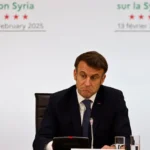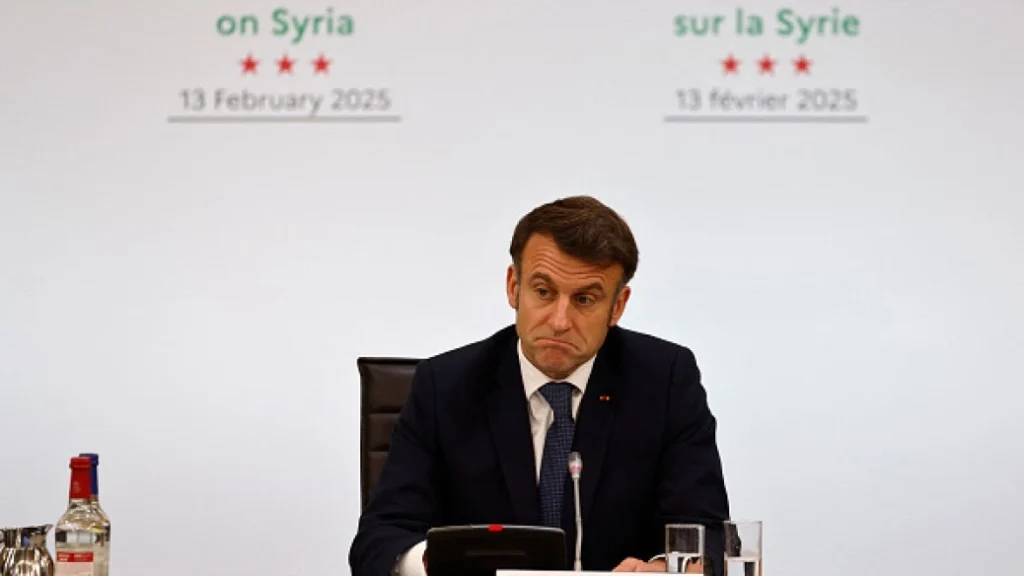ArdorComm News Network
February 14, 2025
French President Emmanuel Macron has urged Syria’s new leadership to ensure governance that is representative and respectful of all communities, emphasizing the need for stability and inclusivity in the war-torn nation.
Speaking at an international conference on Syria’s transition, Macron addressed the new authorities led by interim leader Ahmed al-Sharaa, stating that the responsibility they bear is immense. The event was attended by Syria’s Foreign Minister Asaad al-Shibani along with global stakeholders, including representatives from the United States, Germany, Britain, the European Union, and the United Nations.
Syria’s New Leadership Seeks Legitimacy
Following the fall of Bashar al-Assad’s regime in December after a swift offensive by Islamist-led rebels, Syria’s interim government has worked to reassure the international community of its break with the past.
The new administration has been lobbying the West to ease long-standing sanctions against Assad’s regime, arguing that economic relief is essential for rebuilding the country after nearly 14 years of civil war.
Macron emphasized that the new government’s commitment to respecting all communities would be a key factor in ensuring long-term stability and enabling the return of millions of displaced Syrians.
The Fight Against IS: A Priority
While addressing the political transition, Macron also underscored the importance of continuing the fight against the Islamic State (IS), calling it an absolute priority for Syria’s new leadership.
Despite the defeat of IS’s so-called caliphate in 2019 by Kurdish-led Syrian fighters backed by the US-led coalition, some IS cells remain active in Syria’s desert regions. Macron urged Damascus to actively participate in counterterrorism efforts.
Western Nations Move to Ease Sanctions
In a significant shift, France’s Foreign Minister Jean-Noel Barrot confirmed that the European Union is working towards a rapid lifting of sanctions on Syria, starting with key economic sectors like energy.
Britain also announced a relaxation of restrictions on Syria’s energy, transport, and finance sectors, while the United States has already eased punitive measures, allowing fuel and electricity donations for six months.
Challenges Ahead: Women’s Rights, Kurdish Inclusion, and Ceasefire
Western governments have raised concerns about the direction of Syria’s new leadership, particularly regarding:
- Religious freedom
- Women’s rights
- The status of the Kurdish minority
German Foreign Minister Annalena Baerbock emphasized the importance of women’s representation in Syria’s future government, while also calling for all actors in Syria to be included in the political process.
The conference also addressed the need for a global ceasefire, particularly in the north and northeast, where Turkish-backed factions continue to attack Kurdish-held areas.
A New Era for Syria?
With international support gradually shifting, Syria’s interim government is set to form a new administration next month. Foreign Minister Shibani assured the global community that it would represent all Syrians in their diversity.
As Macron prepares to host Sharaa in Paris soon, the coming months will determine whether Syria’s new leadership can deliver on its promises and rebuild a unified, sovereign, and stable nation.
Source: The New Arab


